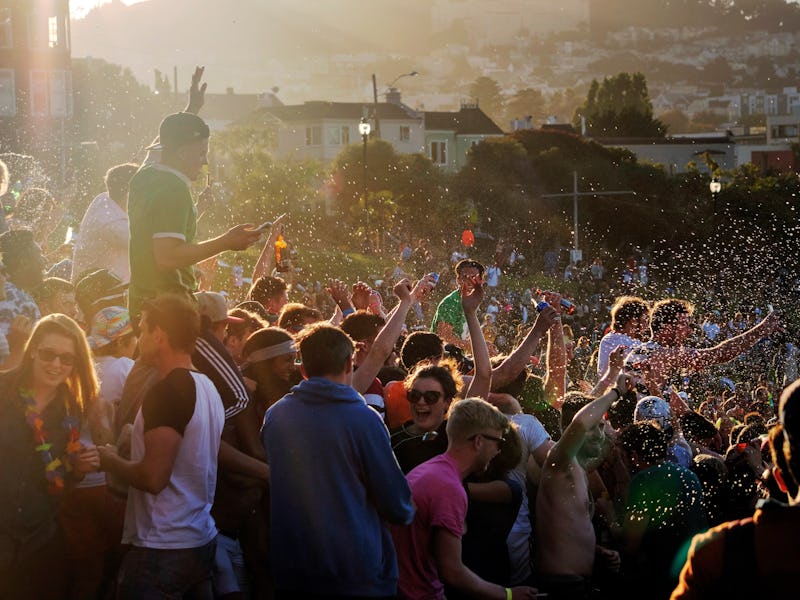San Francisco to Trump: Come at Me Bro
Many of America's most progressive cities have made it clear they will not go along with a radical agenda.

Following the presidential election, the San Francisco Board of Supervisors passed a resolution “responding to the victory of Donald Trump and reaffirming San Francisco’s commitment to the values his presidency threatens.” In it, they highlight a number of the actions Trump has promised to take in office — deport millions of undocumented immigrants, repeal the Affordable Care Act, roll back rights for LGBTQ individuals, enter Muslim immigrants into a national registry, ignore climate change, and cut federal transit funding — and state definitively that they will meet overreach with resistance. The city officials behind this resolution represent a progressive urban center and their distain for the president-elect’s agenda probably does as well.
Those convictions voiced in the resolution point to the severity of the divide that now exists between certain areas of the country. Large cities have always trended liberal, often dragging the rest of their state along with them in the electoral college — that’s nothing new. But never before has the America seen such a unified and widespread denunciation of its direction by its urban leaders.
Over the last decade, San Francisco has been on the forefront of many national issues. As the resolution states, the city has hosted same-sex weddings for years and were taking steps to combat climate change before much of the nation had even taken notice. The San Francisco Police Department is also developing, among other reforms, a new use of force policy. The changes coming to the SFPD are set to be among the biggest in the country. It appears, perhaps unsurprisingly, that the city is prepared to fight to retain the progress it has made.
In recent weeks, other officials in-state and around the country have made similar statements, signaling that they mean to resist those proposals of Trump’s that they view as unjust. Jerry Brown, California’s democratic governor, joked at a dinner for labor organizers in Sacramento that, “If Trump were ever elected, we’d have to build a wall around California to defend ourselves from the rest of this country.”
Los Angeles Police Chief Charlie Beck stated that his police force would not assist a Trump administration with the deportation of illegal immigrants and that the LAPD would not change its posture on the issue. Kathleen O’Toole, Chief of Police in Seattle, also reaffirmed Seattle Mayor Ed Murray’s statements regarding the city’s “sanctuary commitment.”
New York City Mayor Bill de Blasio met with Trump in Trump Tower on Wednesday to try to “express to him how much fear there is in communities all over this city.” Afterwards he told reporters that New York City is “never going back” to stop-and-frisk, the much-derided police tactic found to be unconstitutional several years ago that Trump has professed interest in reinstating. De Blasio then echoed the sentiments of his West Coast colleagues, saying, “I will be open-minded, but swift to react any time action is taken that undermines the values of New York City.”
Liberal city-goers, historically those most in favor of strong central government, look set to make a break for the vestiges of local authority in order to preserve a set of values that has suddenly come under siege. Meanwhile, the Republican Party, champion of states’ rights, is about to take over the federal government and push a national agenda.
For the general population, that means more geographically divided politics. People today, of both liberal and conservative dispositions, are more likely to associate with others who share their political beliefs. This may become even more true under a Trump administration. Cities will get more liberal while suburbs and rural areas trend towards the right. The notion that there are in fact “two Americas” has been used for years by various media and political figures as a device to highlight the level of social stratification in America. Governor Brown isn’t really looking to build that wall, but he might get one all the same as Trump’s election looks set to bring the “two Americas” theory to life.
The San Francisco Board of Supervisors’ resolution concludes, “Bigotry may have won an election, but it cannot change who we are, and it will never change our values. We argue, we campaign, we debate vigorously within San Francisco, but on these points we are 100% united. We will fight discrimination and recklessness in all its forms. We are one City. And we will move forward together.”